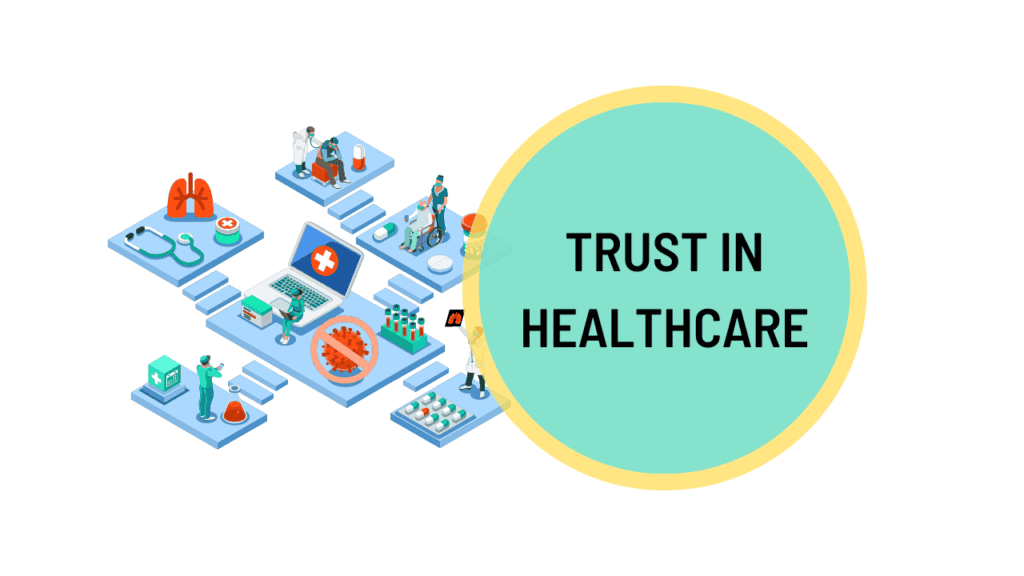
As a society, we place a great deal of trust in doctors. When we’re sick or injured, we turn to them for medical treatment and advice, and we expect that they will do everything in their power to help us heal and feel better. However, can we really trust doctors to always act in our best interests?
In this article, we’ll explore various factors that influence patient trust in doctors and consider whether doctors should always be trusted in the medical context. We’ll also examine other influences that might not have crossed your mind.
By the end of this article, you should have a good idea of the dynamics in our healthcare system and how they inform patient trust. You’ll be able to apply this awareness to future interactions, achieve the best health outcomes, and be in a better overall position to navigate our complex system. Let’s dive right in!
Table of Contents
Trusting Doctors
First off, it’s important to recognize that doctors are highly trained professionals who have dedicated their lives to the practice of medicine. Becoming a doctor is not easy. Any doctor that you see has undergone years of education (at least a decade) and has passed numerous rigorous exams to earn their medical degree.
Many doctors also have undergone additional, specialized training in specific areas of medicine, which means even more years of study and experience. Given the grueling and competitive nature of becoming a doctor, it’s safe to conclude that, in general, doctors are highly competent individuals who are experts on the human body and capable of treating a wide variety of medical conditions.
That being said, it’s important to keep in mind that doctors are also human beings. Like all humans, doctors are subject to the same biases, limitations, and flaws as the rest of us. No matter how much training and education they’ve received, doctors are not infallible and can make mistakes.
Sometimes, a doctor may be too quick to recommend a certain treatment without fully considering all of the possible options. In other cases, a doctor may not be up-to-date on the latest research or may be influenced by their own personal beliefs and biases. This doesn’t mean that doctors are untrustworthy but rather that there are small considerations to acknowledge that might affect quality of care.
Interesting Fact: Nurses
were voted as the most trusted position for the 20th year in a row, while physicians (medical doctors) were voted as the second-most trusted position.
Trusting the Healthcare System: Insurance Companies and Big Pharma
Even though physicians carry a copious amount of responsibility, it’s also important to look at other players in the healthcare space, their roles and impact, and implications in patient trust. More specifically, we need to consider the role of the healthcare system in shaping the way doctors practice medicine.
The current healthcare system is heavily focused on profit, and this can sometimes lead to doctors prioritizing profit over patient care. Although there are countless policies and practices put in place to maintain ethical adherence in medicine, the medical profession is not immune to corruption and greed.
For instance, doctors may be under pressure to see a large number of patients in a short amount of time, which can lead to rushed and impersonal interactions. Medical centers, health insurance, and pharmaceutical companies often incentivize doctors to prescribe certain medications or treatments, even if they may not be the best option for the patient, in order to maximize profits for the hospital or clinic.
In recent years, there have also been numerous cases reported of doctors accepting kickbacks from pharmaceutical companies in exchange for prescribing certain drugs, or of doctors performing unnecessary surgeries in order to make a profit. These kinds of unethical practices can put patients at risk and can erode the public’s trust in the medical profession.
Final Thoughts
So, can we really trust doctors? While it is important to have confidence in the medical profession, it’s also crucial to be aware of the potential limitations and flaws of the system.
As patients, it is our responsibility to educate ourselves about our health and to be proactive in asking questions and advocating for our own well-being. We should not blindly trust doctors without questioning their recommendations or doing our own research.
At the same time, we should also recognize and appreciate the hard work and dedication of the vast majority of doctors who truly care about their patients and strive to provide the best possible care. Becoming a doctor involves a ton of hard work and sacrifice. (Doctors don’t go through a decade or more of schooling and training just to trick you!) Most who become doctors genuinely love medicine and want to help others. The ones who don’t and are just in it for money and prestige usually don’t succeed.
Finally, it’s important to differentiate between physicians and the larger healthcare system as a whole. The American healthcare system is fundamentally a for-profit business, which has its benefits and drawbacks. Again, doctors might be pressured to practice a certain way in order to increase profits, which isn’t necessarily the doctor’s fault but may have negative impacts on care.
You should always remember that the vast majority of doctors are doing everything they can to best advocate for their patients. It’s frustrating for doctors as well when they aren’t able to get patients what they actually need due to policies and interference by insurance companies and administration.
This isn’t to say that there aren’t bad doctors, as it’s inevitable for there to be bad eggs in every profession. However, we shouldn’t be so quick to assign blame to doctors alone or distrust all doctors, since usually there are other factors involved. Most doctors are doing the best that they can within their limitations.
Overall, you should trust doctor; they know what they’re talking about. Just make sure to always think for yourself as well. This might involve having a physician explain their thought process, asking for a second opinion, or doing your own research from reputable sources. 🙂
Conclusion
You’ve made it to the end of this article! Hopefully, you gained some deeper insight into patient-provider relationships and how our healthcare system plays a role from behind-the-scenes.
The next step is to find out which qualities to be on the lookout for the next time you’re searching for a doctor or healthcare provider. In my “The 10 Best Qualities of an Excellent Doctor or Healthcare Provider ” article, we’ll go over the characteristics that all of the best healthcare providers have in common. See you there! As always, stay healthy and keep learning. 😀
” article, we’ll go over the characteristics that all of the best healthcare providers have in common. See you there! As always, stay healthy and keep learning. 😀
